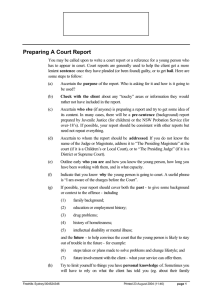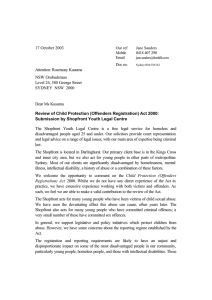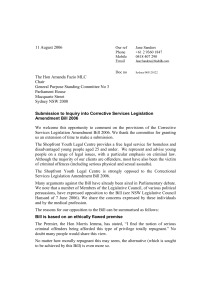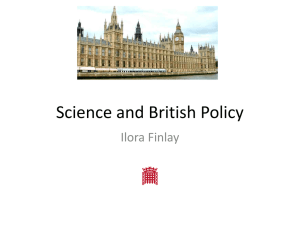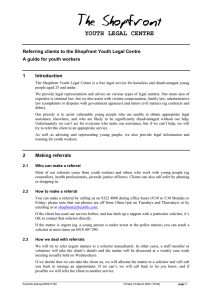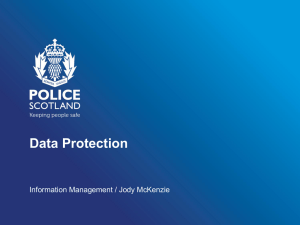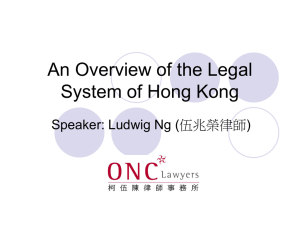Director, Criminal Law Review 28 September 2012 GPO Box 6
advertisement
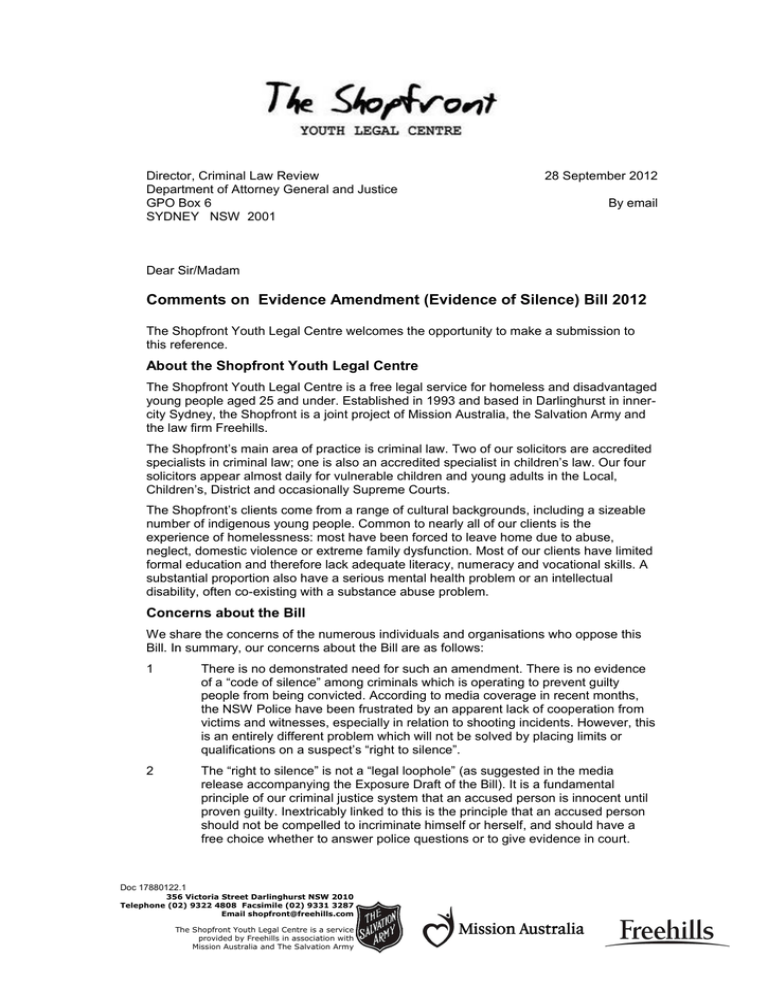
Director, Criminal Law Review Department of Attorney General and Justice GPO Box 6 SYDNEY NSW 2001 28 September 2012 By email Dear Sir/Madam Comments on Evidence Amendment (Evidence of Silence) Bill 2012 The Shopfront Youth Legal Centre welcomes the opportunity to make a submission to this reference. About the Shopfront Youth Legal Centre The Shopfront Youth Legal Centre is a free legal service for homeless and disadvantaged young people aged 25 and under. Established in 1993 and based in Darlinghurst in innercity Sydney, the Shopfront is a joint project of Mission Australia, the Salvation Army and the law firm Freehills. The Shopfront’s main area of practice is criminal law. Two of our solicitors are accredited specialists in criminal law; one is also an accredited specialist in children’s law. Our four solicitors appear almost daily for vulnerable children and young adults in the Local, Children’s, District and occasionally Supreme Courts. The Shopfront’s clients come from a range of cultural backgrounds, including a sizeable number of indigenous young people. Common to nearly all of our clients is the experience of homelessness: most have been forced to leave home due to abuse, neglect, domestic violence or extreme family dysfunction. Most of our clients have limited formal education and therefore lack adequate literacy, numeracy and vocational skills. A substantial proportion also have a serious mental health problem or an intellectual disability, often co-existing with a substance abuse problem. Concerns about the Bill We share the concerns of the numerous individuals and organisations who oppose this Bill. In summary, our concerns about the Bill are as follows: 1 There is no demonstrated need for such an amendment. There is no evidence of a “code of silence” among criminals which is operating to prevent guilty people from being convicted. According to media coverage in recent months, the NSW Police have been frustrated by an apparent lack of cooperation from victims and witnesses, especially in relation to shooting incidents. However, this is an entirely different problem which will not be solved by placing limits or qualifications on a suspect’s “right to silence”. 2 The “right to silence” is not a “legal loophole” (as suggested in the media release accompanying the Exposure Draft of the Bill). It is a fundamental principle of our criminal justice system that an accused person is innocent until proven guilty. Inextricably linked to this is the principle that an accused person should not be compelled to incriminate himself or herself, and should have a free choice whether to answer police questions or to give evidence in court. Doc 17880122.1 356 Victoria Street Darlinghurst NSW 2010 Telephone (02) 9322 4808 Facsimile (02) 9331 3287 Email shopfront@freehills.com The Shopfront Youth Legal Centre is a service provided by Freehills in association with Mission Australia and The Salvation Army Although the proposed amendment will not compel a suspect to answer police questions, it places an unacceptable level of pressure on a suspect to do so. 3 Police questioning often takes place when a suspect is at their most vulnerable. Although some suspects participate in police interviews voluntarily, at a time of their own choosing, we suggest that this is the minority of cases. Where there are allegations of serious indictable offences, most suspects are under arrest and many are experiencing significant stress. A significant number of suspects will also be temporarily impaired by factors such as intoxication or lack of sleep. This is not an ideal time to be making decisions which have the potential to affect a person’s defence on serious criminal charges. 4 It is likely to be unsophisticated and vulnerable people, and not the “hardened criminals” at whom the Bill is ostensibly aimed, who will bear the brunt of the proposed amendments. 5 Although the Bill will not apply to children and to people with cognitive impairments, in our view this does not go far enough. There are other groups of people in our community who are particularly vulnerable when dealing with police, in particular Aboriginal people and Torres Strait Islanders, people who are not fluent in the English language, and recent arrivals from overseas countries with cultural backgrounds significantly different to our own. It is of concern that the proposed Bill does not afford protection to all the categories of people classified as “vulnerable persons” under Part 9 of the Law Enforcement (Powers and Responsibilities) Act. 6 It must also be borne in mind that “serious indictable offences”, to which this Bill applies, are offences punishable by imprisonment for five years or more. This casts a very wide net and includes minor offences such as shoplifting and lowlevel property damage. 7 The proposed changes are said to be modelled on the system that has operated in England and Wales since 1994. However, a fundamental part of that system is the provision of duty solicitors who are available at every police station to provide face-to-face legal advice and to sit in on police interviews with suspects. A telephone advice line (as proposed by the Government in its media release accompanying the Exposure Draft Bill) is no substitute for such a system. The practical and ethical problems facing lawyers providing advice in such circumstances, especially over the telephone, are discussed in the Law Society’s submission. We share the Law Society’s concerns. We urge the government to reconsider its position and to withdraw this Bill. Yours faithfully Jane Sanders Principal Solicitor 17880122 Comments on Evidence Amendment (Evidence of Silence) Bill 2012 page 2
